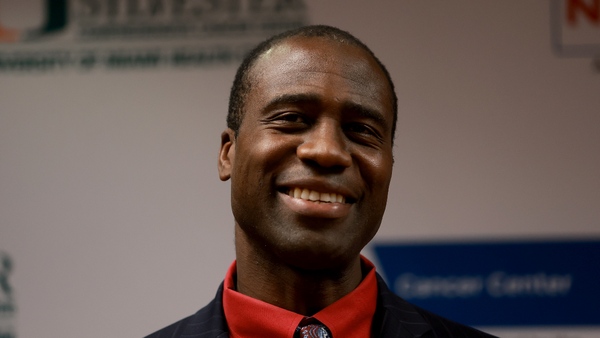After a late-night recording session in Los Angeles 20 years ago, Kanye West fell asleep at the wheel of a rented Lexus and crashed it into an oncoming vehicle, breaking his jaw in three places. What might have been the end of West’s short career as a hip-hop artist — he had signed a deal with Roc-A-Fella Records just two weeks beforehand — instead became the inspiration for one of the greatest singles of the 21st century, West’s “Through the Wire.”
“I’m a champion, so I turned tragedy to triumph / Make music that’s fire, spit my soul through the wire,” West raps, his shattered jaw still wired shut, over a sped-up loop of the chorus of Chaka Khan’s “Through the Fire.”
For nearly two decades, beginning with his 2004 debut, “The College Dropout,” West has written, produced and performed some of the greatest music of his time. That he’s a virulent antisemite and misogynist as well as a deeply troubled human being doesn’t change that.
Particularly as a Jew, I could never defend West’s bigotry. But his music is a different story.
Much of my life revolves around art and media consumption, so I consider myself lucky to be able to separate artists from their art. I know it’s difficult, if not impossible, for others.
Take my mom, who will immediately change the radio station if a Michael Jackson song comes on, disturbed by the allegations that he sexually abused multiple children. I watched the two-part documentary “Leaving Neverland,” about two men who accuse Jackson of sexually abusing them as children. I believe them. But when “Billie Jean” or “Thriller” comes on the radio, the accusations against Jackson as an individual are, in my mind, irrelevant to the music.
I consider “Annie Hall” a cinematic classic that is unmarred by charges that director and star Woody Allen is a sexual predator and child abuser. I can admire the paintings of Salvador Dalí despite his admiration for Adolf Hitler and Spanish Dictator Francisco Franco. And I consider Philip Roth’s “American Pastoral” a literary masterpiece even though the author was a bitter and cruel misogynist.
Why is it that some of us can enjoy great art despite its creators and others can’t? Ideally, we should all be able to. After all, so many of the greatest artists were and are deeply disturbed and flawed individuals.
“Great wits are sure to madness near allied, and thin partitions do their bounds divide,” wrote the English poet John Dryden.
Of course, mental illness does not excuse or explain horrible crimes or hateful ideologies. In the case of Kanye West, his bipolar disorder diagnosis certainly does not account for his antisemitic rants. But many artists are not just troubled but awful people. If we weren’t able to separate the art from the artist, there would be a lot less left to consume.
Case in point: Since author J.K. Rowling emerged as a vicious transphobe in 2020, Harry Potter fanatics have struggled to separate her work from her personal beliefs. Some have chosen to reclaim the world she created for Potter fandom, staying loyal to the series while denouncing its creator.
Daniel Radcliffe, who played the books’ protagonist on film, published an open letter on Nov. 1 addressing the controversy, firmly declaring that “transgender women are women.” He also made a pitch for separating the novels from their writer.
“To all the people who now feel that their experience of the (Harry Potter) books has been tarnished or diminished, I am deeply sorry for the pain these comments have caused you,” Radcliffe wrote. “I really hope that you don’t entirely lose what was valuable in these stories to you.”
Truly great art can — and should — be able to transcend historical context and stand on its own. The New Criticism movement in literary theory popularized that idea in the early 20th century. Several decades later, the French philosopher Roland Barthes took it a step further, arguing in 1967 that the birth of the reader necessitates the death of the author. Barthes held that the artist must be removed from the equation for a piece of art to stand before an audience and be honestly interpreted.
Like Barthes, I believe that audiences’ interpretations of art — the associations they make and the conclusions they draw — are entirely subjective. For me, that means continuing to enjoy “Through the Wire.” When I’m listening to the song for the zillionth time, it belongs not to West the conspiracy theorist but to me.
———







